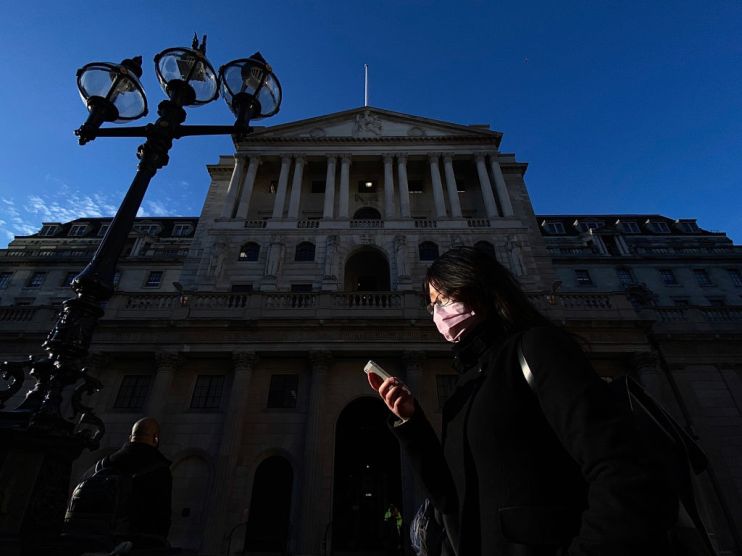Bank of England deputy warns of risks to BoE’s upbeat forecast

Bank of England deputy governor Dave Ramsden has warned that there could be some “scarring” to the economy after coronavirus as he stressed that the path to recovery is hugely uncertain.
Ramsden also said that the Bank still has “quite a lot of headroom” to buy more bonds and echoed governor Andrew Bailey in saying that it is keeping negative interest rates “under active review”.
Earlier this month The Bank of England said the UK economy could well shrink 14 per cent this year, its fastest rate in 300 years this year. Yet the Bank said the economy was likely to bounce back strongly in 2021 and recover to its pre-coronavirus size at the end of next year.
Speaking to Reuters, Ramsden today highlighted that the outlook was very uncertain and the real path of the economy could be worse than the Bank envisaged.
“We were very clear in May that we saw the risks on balance to the downside,” he said.
In particular, the Bank of England deputy governor said that companies collapsing and investment cuts by businesses could hinder the recovery.
He said there will be “mechanisms for scarring”. Some companies will collapse because “they just didn’t fit sufficiently with what the current post-Covid world looks like”.
“Could [the downturn] persist for a bit longer? That’s an open question and these are very, very early days.”
More Bank of England stimulus coming?
Many analysts think the Bank will increase its quantitative easing (QE) bond-buying programme in June by £100bn, taking the total to £745bn.
Under QE, the Bank creates digital money and uses it to buy bonds from banks and firms. This floods the market with cash and lowers borrowing costs with the hope of boosting lending and spending.
Ramsden said the BoE still has “quite a lot of headroom” to buy more bonds. “It’s quite possible that we could do more at that meeting or at subsequent meetings. But we will make that decision at the time,” Ramsden said.
Yet the deputy governor for markets and banking ruled expanding the sorts of securities the Bank buys. Some central banks have started buying shorter-dated bonds and even exchange-traded funds.
Ramsden said that “the fundamentals [of the existing scheme] work”. He added: “That’s why index-linked, going shorter than three years, for me, that’s not on the agenda.”
Negative interest rates under ‘active review’
In the last few days markets have been alive with talk about whether the Bank of England is going to introduce negative interest rates. It slashed its main rate to 0.1 per cent in March and is now dealing with inflation well below its target of two per cent.
A negative interest rate would mean banks that keep their cash in the Bank of England’s virtual vaults would have to pay to do so, in a bid to make them lend.
On negative rates, Ramsden said: “We are keeping our whole tool-set under active review.”
His statement echoes that of governor Bailey, who said earlier this week that he has “changed his mind” on negative rates after previously speaking out against them. Yet Bailey said the Bank is not ruling anything out but is not ruling anything in, either.
Ramsden said: “These are really serious issues where you can’t just say, ‘Oh, this happened in this episode in another country, so let’s therefore apply it to the UK.’ You need to work through the consequences.”